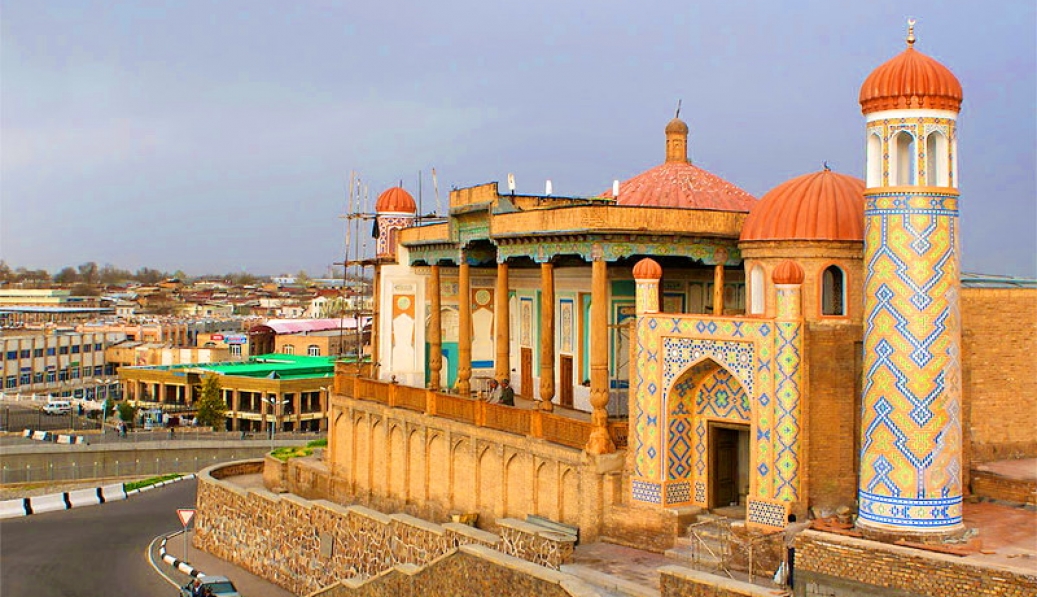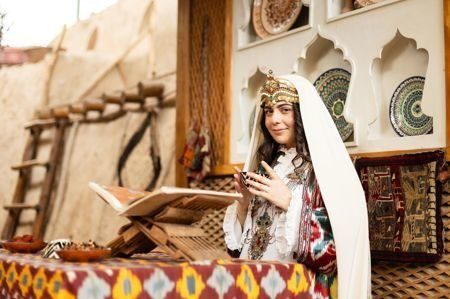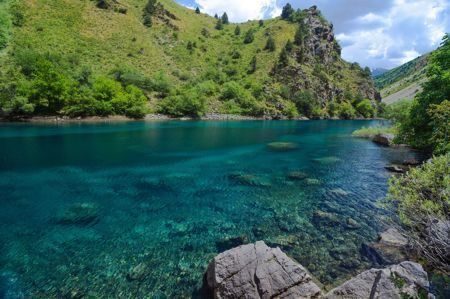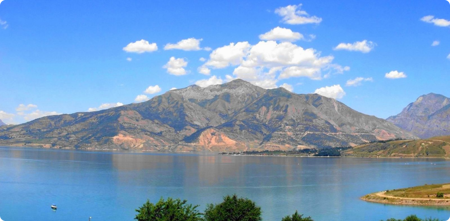The Hazrati Khizr Mosque is located in the south of the Afrasiab settlement, opposite the famous Siab Bazaar and the Bibi-Khanum Mosque. The façade of the mosque consists of a rather high base with arched niches of the “aiwan” (canopy), which is closed from the west by a “guldasta” (corner half-tower) with brick cladding. The top of the ivan ends with a row of bricks laid on edge - “dandana”. From the east, the entrance portal - “darvazakhana” with guldastas and beautiful carved gates - is organically included in the mosque system. The eastern minaret closes this row.
The Hazrati Khizr Mosque is one of the oldest Muslim places of worship in Samarkand. The mosque was built in the 8th century and was located on a hill at the entrance to the city, not far from the ensemble of mausoleums of Shahi Zinda and Siab Bazaar that appeared much later. A cemetery later appeared around the mosque. According to legend, there are seven levels of burials and on each level there are bodies of saints or prophets.
The mosque was destroyed by the horde of Genghis Khan in the 13th century. Later it was restored and rebuilt many times, and acquired its current appearance in the 19th century. It offers a beautiful view of other attractions of Samarkand: Registan Square, the Shahi Zinda mausoleum and the Bibi Khanum architectural complex. To the north of the mosque is ancient Samarkand - the ancient settlement of Afrasiab.
Hazrati Khizr is one of the Muslim saints, the patron saint of travelers, in charge of water resources and wealth. His name in Arabic means "green light", i.e. "life-giving". According to legend, he is a descendant of Adam in the 20th generation.
According to legends, Allah created the spirit of Hazrati Khizr 300 years before the creation of the Earth and everything else. When he clothed Khizr in material form, he gave him eternal life and made him the rulers of all water. In Greek mythology, it corresponds to the god of water - Neptune. He is considered one of those saints, upon meeting whom a person becomes happy, healthy, rich - desires begin to come true. They say that a person can meet Hazrati Khizr three times during his life.
Interpreters of Islam claim that it was Khizr who was the unknown mentor of Musa (Moses), about whom the Holy Scriptures narrate (Koran 18:60-82).
Khizr taught Musa to endure and not get angry, not to judge people for those things and actions the meaning of which he does not know. Perhaps people have good reasons for their actions. Perhaps they are guided by good intentions and do not wish to cause harm. You should not be complacent and think that you know everything and that there is no one who knows more than you and is more knowledgeable. A person should do good, even if he does not receive anything for it, since this good benefits other good people.
According to the legends of Hazrati, Khizr is immortal, he is lighter than air, but he can control his body with the wind, and therefore moves, hovering slightly above the surface of the earth, it is considered great luck to meet him, and even more so to grab onto his clothes - it is believed that such a person must he will be lucky and he will be happy.
There are many such folk beliefs
about Khizr. By the way, the famous eastern hospitality is partly justified by the legends about Khizr, since Khizr can come in any guise at any time.
According to one of the widespread legends, Khizr served in the army of Alexander the Great and helped the great commander find a source of living water in Central Asia.
The great poet Jalal ad-Din Rumi wrote: “When you choose your master, be obedient - follow him, like Moses, who was led by Khizr.”








